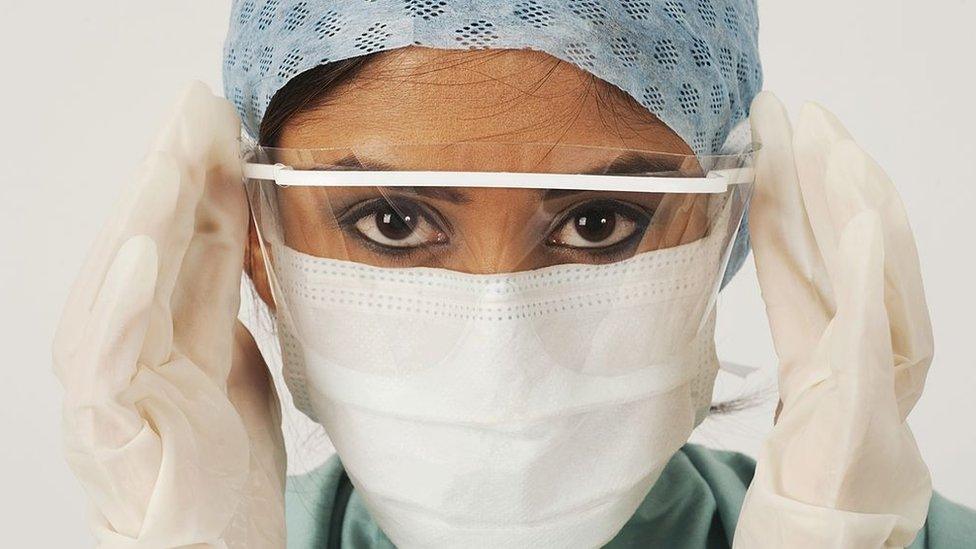Coronavirus: UK ‘wasting time’ on NHS protective gear orders
- Published
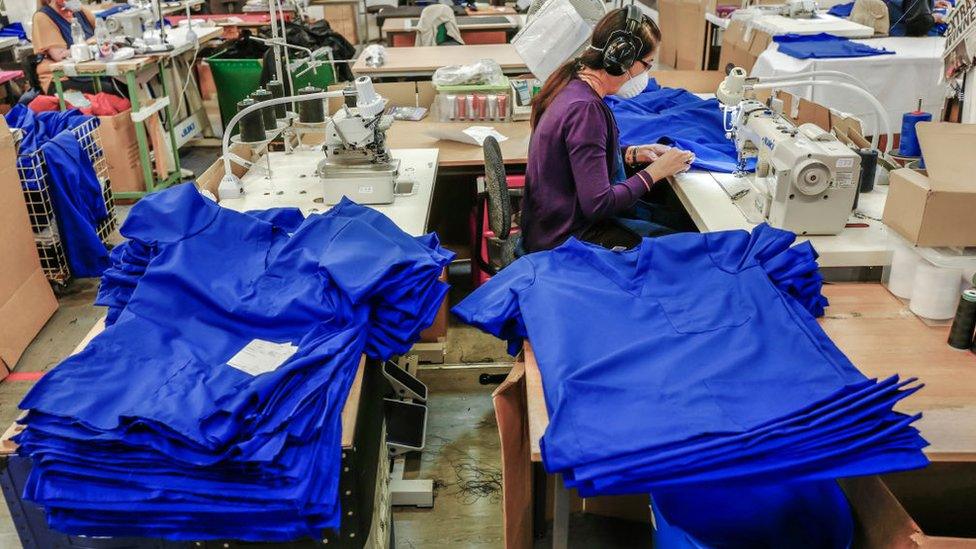
UK clothes makers say the government has wasted time in ordering personal protective equipment for NHS staff.
Fashion and textile firms believe they could have begun making gowns and masks for front-line workers 10 days ago.
"The government is dragging its heels and it is really, really frustrating," said Kate Hills from Make it British, a trade group.
But the government says it is working "around the clock" to provide support to the NHS and social care staff.
However, factories are receiving calls directly from local hospitals saying "can you make us anything, we are desperate for any protective equipment, anything that you can provide", according to Make it British.
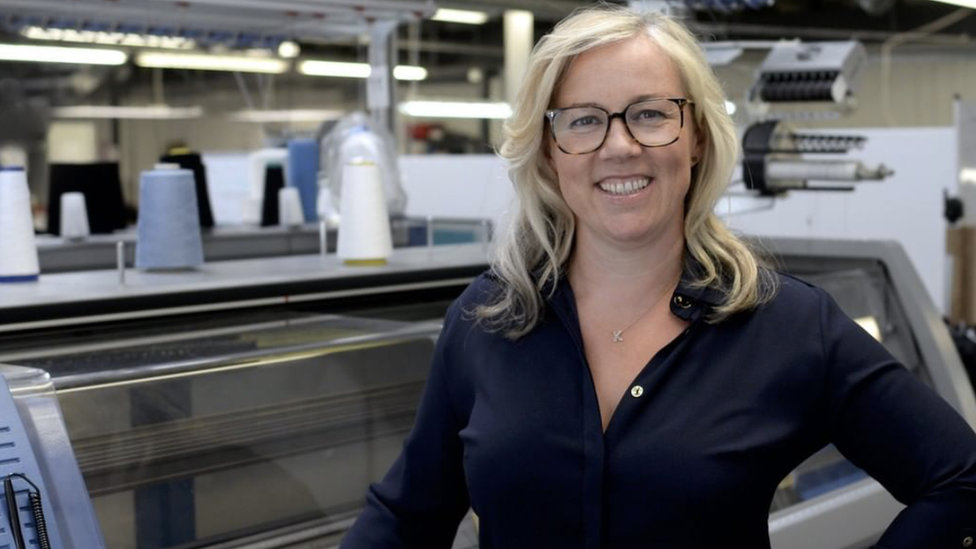
Kate Hills is the founder of Make it British
Ms Hills believes the government does not have the expertise it needs to source the products from UK firms because it is so used to importing goods from overseas.
"Everyone in the whole world is looking for the PPE [personal protective equipment]," she says. "We need to look at local suppliers and mobilise supply here."
Two weeks ago, the Cabinet Office distributed a survey to manufacturers asking what protective equipment they would be able to make.
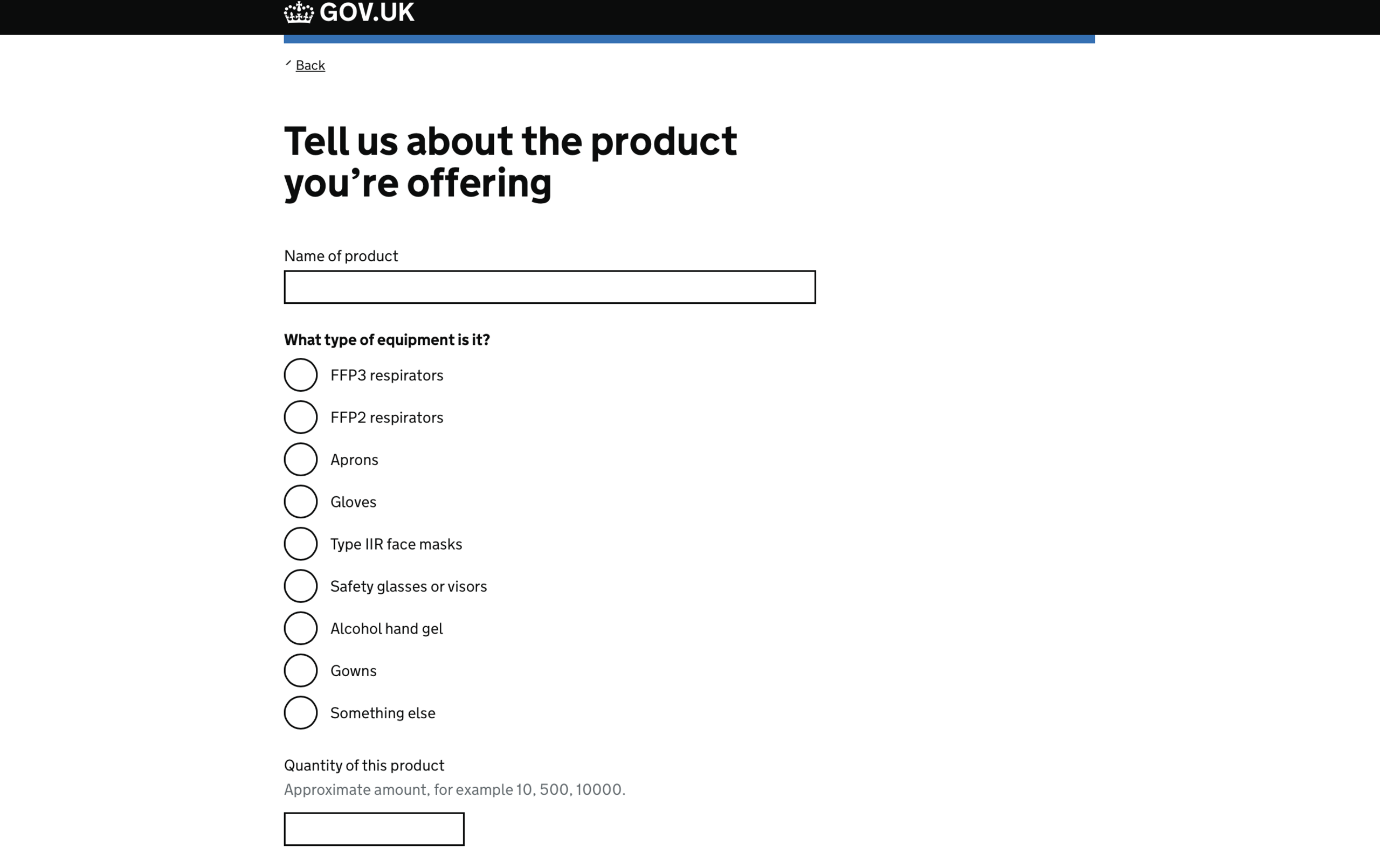
The Cabinet Office survey asked how many of each product a factory could produce
Factories responded, yet the government has so far failed to get in touch or order anything from them, they say.
Meanwhile, staff in hospitals have complained they lack basic protective gear such as face masks or medical scrubs, with some even buying their own.
Make it British said that some senior medical staff in the UK had even resorted to paying cash for face masks sold on the black market in China.
But, speaking on Sunday, Housing Secretary Robert Jenrick said the government "will not stop" to get personal protective equipment to frontline workers.
"We simply cannot and should not ask people to be on the frontline without the right protective equipment," he said at the daily Downing Street press conference.
He said 42.8 million gloves, 142,000 gowns and 2.3 million pairs of eye protectors have been delivered to 58,000 "health care settings", including hospitals and GP surgeries.
Like many sectors, the NHS and its suppliers have relied on imported stocks of that equipment from factories in Pakistan, India or Bangladesh, where it is cheaper to produce.
But as those countries fight the coronavirus pandemic themselves, the factories have closed and local hospitals are buying all the stock they can.
'Waste of time'
Tamara Cincik - a consultant, and adviser to a Parliamentary group for the textile and fashion industry - said the government needed to act more quickly.
"Waiting for supplies from China, Turkey, Egypt is a waste of time, prices will escalate and ultimately run out," she said.
The British Medical Association also warned that the deaths of frontline medical staff in Italy "served as an urgent warning" to British government over the supply of PPE equipment.
In response to the UK shortage, manufacturers across the country have come forward to tell the government they can make the scrubs, gowns and masks that nurses and doctors have said they need.
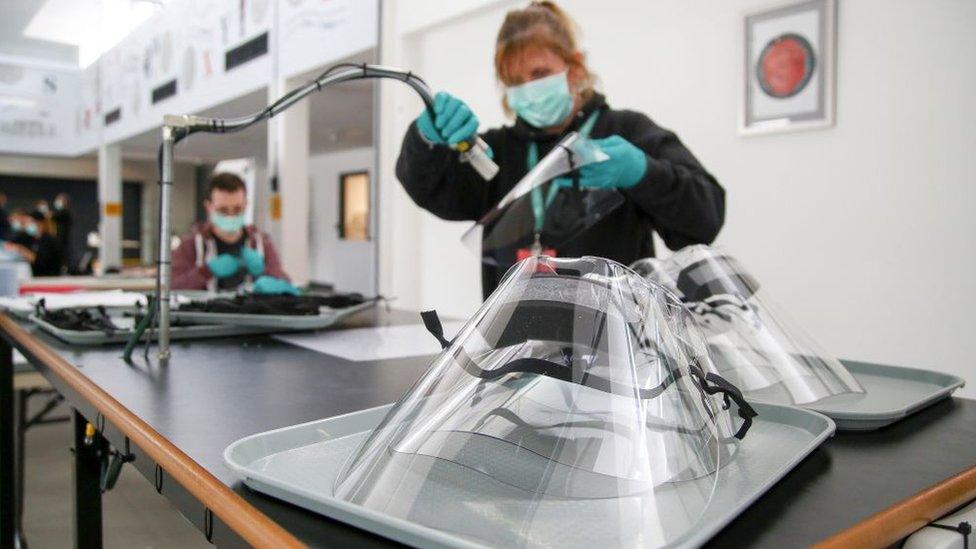
Workers at the Royal Mint have started making face masks
But there is a complex supply chain behind the production of those items.
It is not just the job of one single factory. The process requires spinners, weavers, finishers, cutters and sewers.
It is likely the garments will then need to be washed and sterilised. But Make it British says it has the supply chain in place and that it is just waiting for the go-ahead from government.
One of the UK's biggest fashion brands, which did not want to speak publicly, said its staff had fielded calls from local hospitals and nurses who are desperate for protective supplies.
Jenny Holloway runs Fashion-Enter, a garment manufacturer in North London. Like many factories, it has seen orders from normal retail clients collapse.
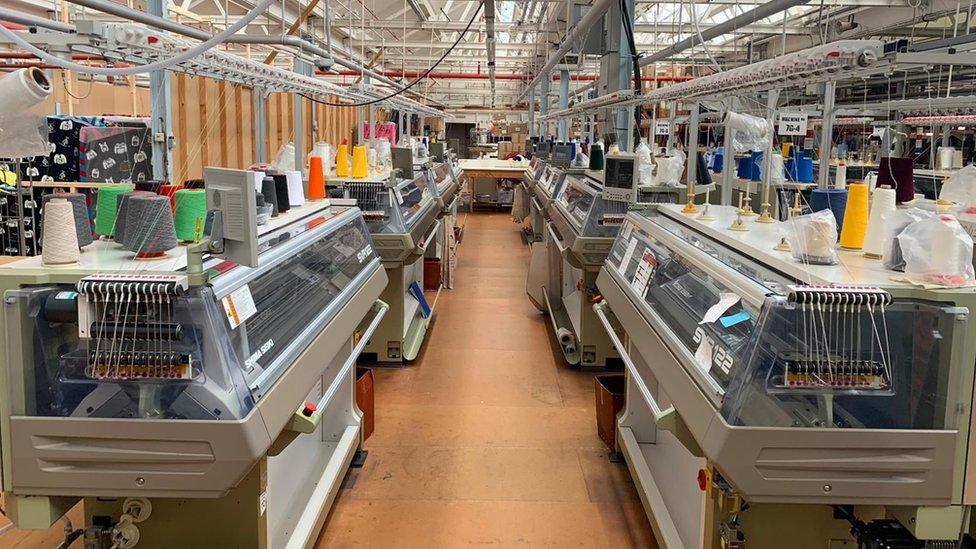
They are currently working on a small order of masks for a private client. But Ms Holloway said she had applied to the Cabinet Office because her firm would love to work for the NHS.
"We have lots of single ladies and disabled staff. We can furlough them but they want to work and be part of this effort."
On Saturday, business secretary Alok Sharma said the government was easing the restrictions on those who could supply protective gear to the NHS.
The government would not comment on the discussions with manufacturers.
- Published29 March 2020
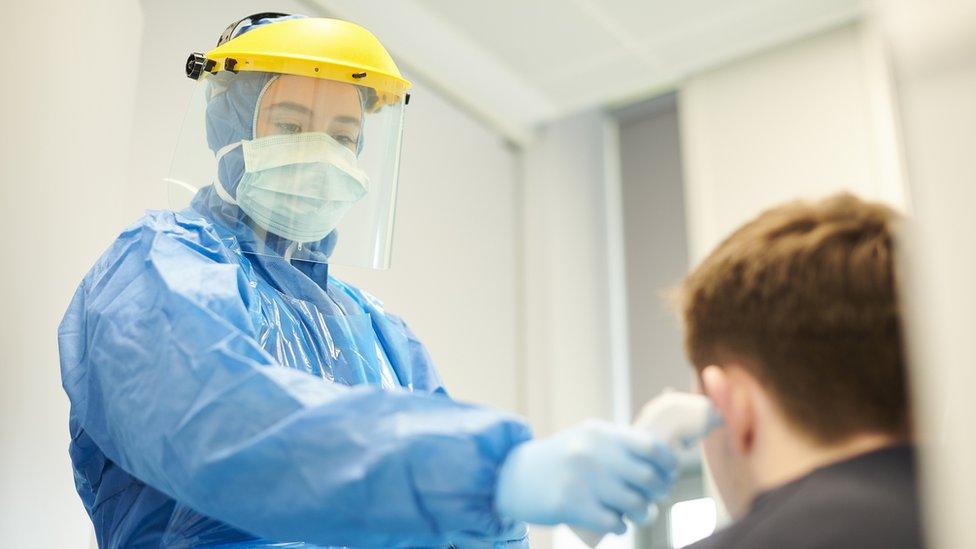
- Published27 March 2020
